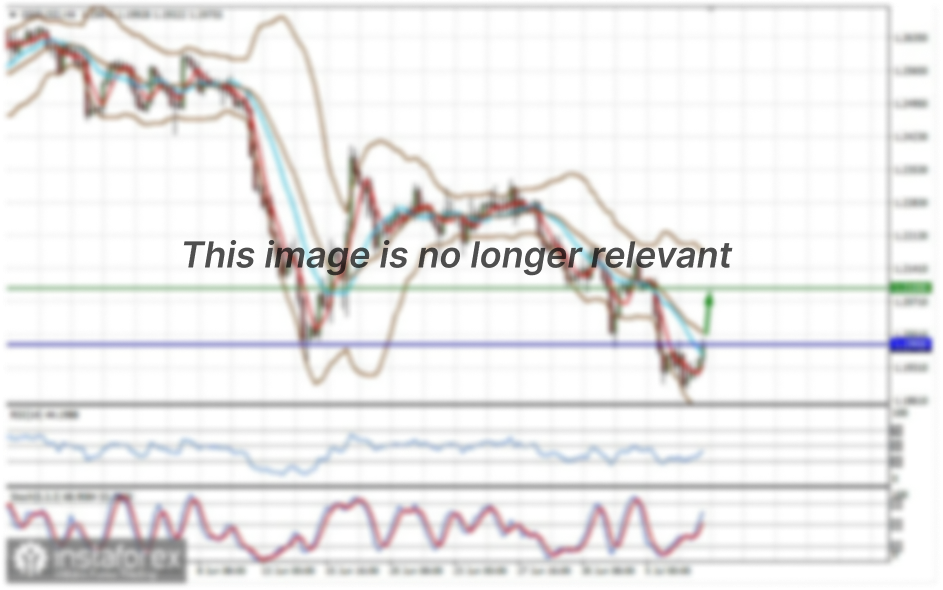On the back of the fifth super-cycle of growth, which began in the commodity market in the winter, benchmark oil brands have been growing for the fourth month in a row. For example, Brent crude has already gained 30% since the beginning of the year, breaking the pandemic threshold level of $65.
Given the recovery in oil demand and the significant reduction in its oil reserves accumulated during the pandemic, experts suggest that oil prices may climb even higher. In the second half of the year, oil has a chance to add another 10% and thus soar up to $74.
In the short term, the main driver for its growth may be successful vaccination campaigns around the world and an improvement in the global epidemiological and economic situation. However, currently, the news about the coronavirus is weighing on the oil market.
The alarming rise in COVID-19 cases seen in recent days in Asian countries is undermining hopes for a further recovery in global demand. After reports of a difficult epidemiological situation in India on Monday morning, oil continues the downward movement that started last week.
At the time of writing this article, Brent oil futures for June lost 0.39%, dipping to the level of $65.85. Meanwhile, the July contract sank by 0.34% to the level of $65.2. WTI also showed a 0.26% drop to $61.98.
Experts warn that oil prices may suffer from the negative consequences of the coronavirus until 2024. However, the oil market may not collapse for this reason. The key factor that will put strong pressure on the quotes will be the rapid development of green energy.
Recently, Wood Mackenzie, the UK research group, has published a disappointing long-term forecast for oil. According to the analysts' report, demand for oil will decline in two years. By the middle of the century, it will decrease by about 70% compared to the current value.
Demand for hydrocarbons will fall dramatically if world economic leaders continue to be determined to implement the Paris Climate Agreement. This agreement involves switching to alternative energy sources in order to prevent further climate change.
UK analysts reckon that the greatest danger to the oil market will be the electrification of the manufacturing sector and the transport industry. If so, by the end of the decade, the cost of Brent oil may fall to $37per barrel. By 2050, it may nosedive to $10.
Notably, commodity analysts consider these figures far-fetched and unrealistic as the transport industry currently accounts for only 65% of global fuel consumption. Moreover, this is the total figure for the automotive industry and aviation, and the latter has not yet announced its switch to a carbon-neutral approach. For this reason, transport electrification will not occur soon in the commodity market. This is why it is unlikly to push oil prices down to critical levels in just a couple of years.
Naturally, over time, demand for fuel in the transport industry may significantly decrease due to the rapidly growing market for electric motors. However, it will take much longer for the green revolution in manufacturing and other sectors to take root. Here, oil is not only used as a source of fuel but also a crucial element for obtaining other products that ensure the buoyant activity of production.
Some experts believe that as long as large industries do not completely abandon oil products, oil prices will stay at more or less the same levels. The most optimistic forecast suggests an increase in oil to $80 - $100. More realistic predictions conjecture that the price will rise from $60 to $65 per barrel.
Commodity experts do not deny that over the next 10 years, the transition to green energy may drastically reduce demand for oil. However, this will be a gradual and unhurried loss of leadership as evidenced by the current statistics on the volume of electricity generated from carbon-neutral carriers. Currently, this figure does not even reach 30% of the total global output.
In addition, experts at Wood Mackenzie did not take into account the fact that oil is an exhaustible energy source. This means that as the reserves are depleted, the oil price will only go up even despite negative factors that usually push oil to record lows. Most likely, OPEC+ will not allow the oil market to collapse. The members of the alliance will continue to adhere to the policy of reducing production in order to keep oil from a drastic drop.









